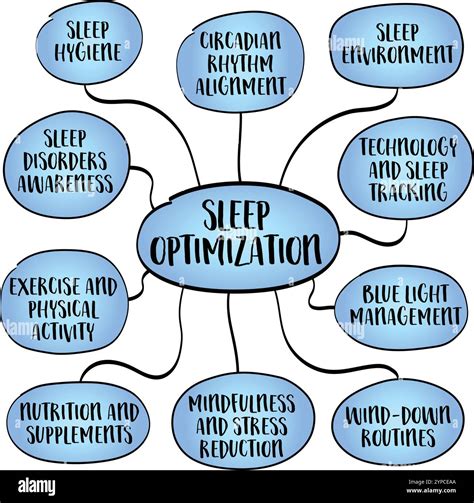How to optimize sleep hygiene for peak cognitive and physical recovery?

The Critical Role of Sleep in Our Daily Lives
In our demanding modern world, sleep is often the first thing sacrificed in pursuit of productivity or leisure. However, mounting scientific evidence underscores that quality sleep is not a luxury but a fundamental pillar of health, directly impacting our cognitive function, physical recovery, and overall well-being. Optimizing sleep hygiene—the set of habits and practices conducive to sleeping well on a regular basis—is the most effective strategy for unlocking peak mental and physical potential.

Establishing a Consistent Sleep Schedule
Our bodies thrive on routine, especially when it comes to sleep. The circadian rhythm, our internal 24-hour clock, regulates sleep-wake cycles and is profoundly influenced by consistency. Going to bed and waking up at roughly the same time every day, even on weekends, helps synchronize this rhythm. This regularity reinforces the natural signals for sleep and wakefulness, making it easier to fall asleep and wake up feeling refreshed.
- Set a Fixed Bedtime and Wake-up Time: Aim for 7-9 hours of sleep for most adults.
- Avoid “Catching Up” on Weekends: Significant deviations can lead to “social jet lag,” disrupting your internal clock.
Optimizing Your Sleep Environment
Your bedroom should be a sanctuary for sleep, free from distractions and conducive to rest. Creating an ideal sleep environment is paramount for deep, restorative sleep.
- Darkness: Even small amounts of light can disrupt melatonin production. Use blackout curtains or an eye mask.
- Temperature: Most experts recommend a cool room, typically between 60-67°F (15-19°C).
- Quiet: Minimize noise with earplugs, a white noise machine, or sound-proofing measures.
- Comfort: Invest in a comfortable mattress, pillows, and bedding that support good posture and breathability.

Developing a Relaxing Pre-Sleep Ritual
Just as a warm-up prepares your body for exercise, a wind-down routine prepares your mind and body for sleep. This ritual signals to your brain that it’s time to transition from activity to rest.
- Power Down Electronics: The blue light emitted by screens (phones, tablets, computers) can suppress melatonin production. Avoid screens at least an hour before bed.
- Engage in Calming Activities: Read a physical book, take a warm bath, listen to soothing music, practice light stretching or meditation.
- Avoid Heavy Meals and Stimulants: Finish eating several hours before bed. Limit caffeine and alcohol, especially in the afternoon and evening, as they can interfere with sleep architecture.

The Impact of Diet and Exercise
What you consume and how you move your body significantly influence sleep quality.
- Mindful Eating: Avoid heavy, fatty, or spicy foods close to bedtime. Some foods like whole grains, nuts, and tart cherries contain compounds that promote sleep.
- Strategic Hydration: Stay hydrated throughout the day, but reduce fluid intake closer to bedtime to minimize nighttime bathroom trips.
- Regular Physical Activity: Exercise can profoundly improve sleep quality. However, timing is key; avoid vigorous workouts too close to bedtime (within 2-3 hours), as it can be stimulating. Morning or afternoon exercise is ideal.

Managing Stress and Seeking Support
Stress and anxiety are notorious sleep disruptors. Learning to manage these can dramatically improve your sleep hygiene.
- Mindfulness and Meditation: Regular practice can reduce racing thoughts and promote relaxation.
- Journaling: Writing down worries before bed can help clear your mind.
- Professional Help: If sleep difficulties persist despite optimizing your sleep hygiene, consider consulting a healthcare professional. They can rule out underlying sleep disorders like insomnia, sleep apnea, or restless legs syndrome, and provide tailored treatment plans.

Conclusion: The Investment in Better Sleep
Optimizing sleep hygiene is an ongoing process that requires commitment and patience, but the rewards are profound. By consistently prioritizing your sleep environment, schedule, pre-sleep rituals, and lifestyle choices, you empower your body and mind to achieve peak cognitive function, accelerate physical recovery, and enhance overall resilience. Treat sleep not as an obligation, but as an essential investment in your health and performance.









